6 Best Daily Workouts for a Healthy Heart
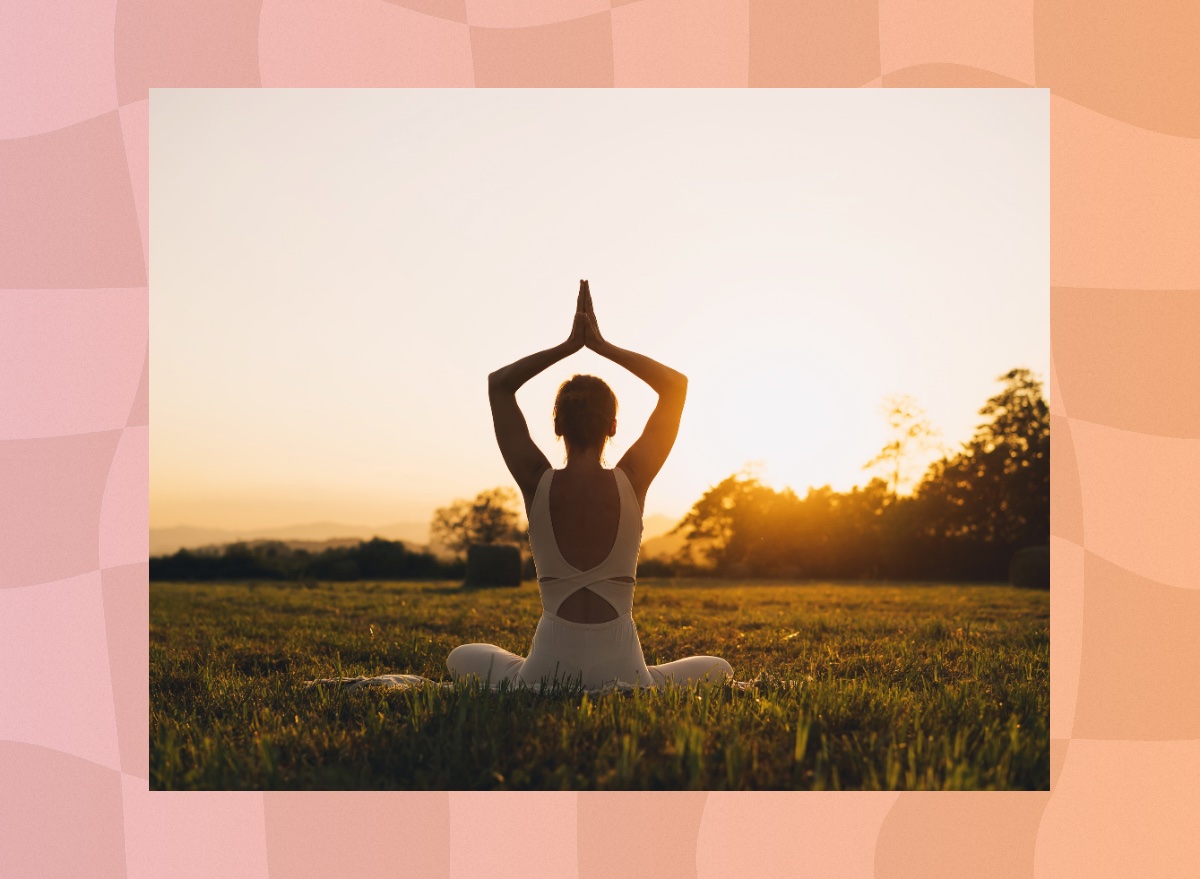
If you love your heart, it will love you back. Why is this relationship so important? Well, this essential organ works super hard, pumping blood to the rest of your body and transporting nutrients and oxygen. To help keep your heart strong and healthy, it’s necessary to exercise regularly. We sourced some of the best daily workouts you can do for a healthy heart.
According to the American Heart Association (AHA), every adult should perform aerobic exercise at a moderate intensity for a minimum of 150 minutes each week. This includes activities such as walking, biking, jogging, running, swimming, and stair climbing. We made the process easy for you with these expert-recommended daily workouts for a healthy heart.
“Engaging in regular exercise is an excellent way to prevent heart disease for several reasons,” Dr. Mary Branch, a board-certified cardiologist, explains. And every little bit helps! “Something is better than nothing. Many folks are not active at all,” Dr. Branch adds. “I recommend starting with five minutes, three times per week of walking.”
Then, when you’re ready to add to your routine, you can explore the below workouts for a healthy heart. Just be sure to complete a proper warm-up and cool-down with whatever workout you choose.
Running
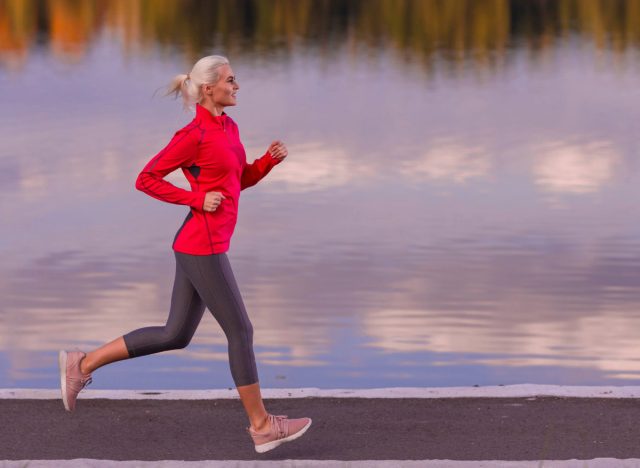
When you’re comfortable with your walking routine, consider stepping things up and running. All you need to do is invest in a good pair of running shoes, find a route, and you’ll be ready to hit the pavement.
Keep in mind, though, that running can be more taxing on your joints and is not for everyone. Brisk walking is a stellar alternative, and you can incorporate ankle and hand weights, along with walking sticks.
“Running and walking increase the heart rate and blood pressure, providing conditioning for the cardiovascular system,” explains Melissa Tracy, MD, FACC, FASE, a cardiologist and medical director of cardiac rehabilitation for Rush University System for Health. “After a good run or walk, the pulse and blood pressure decrease, yet the endorphins increase. Alternating running with walking and/or navigating over different terrains are excellent ways to challenge your body.”
Swimming

The pool isn’t just for taking a dip to cool off on a hot summer’s day. Swimming can provide an excellent cardiovascular workout.
“The cool water maintains your body temperature, but the heart rate and blood pressure still increase, promoting the benefits to the heart without pounding on our joints,” explains Dr. Tracy. “In addition, the resistance in the water works the muscles, too—an added benefit.”
Circuit Weight Training
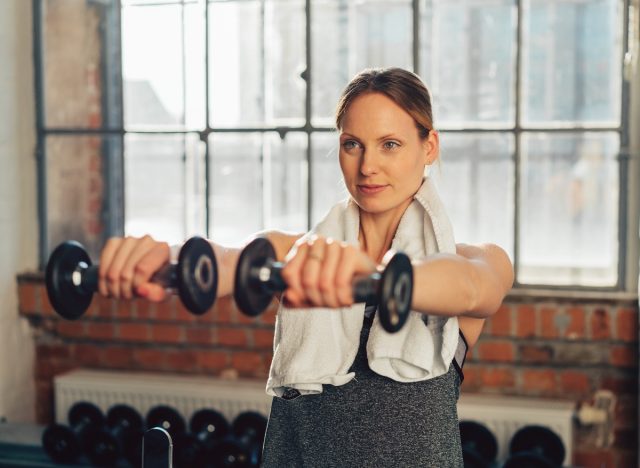
Circuit weight training is a productive workout for your cardiovascular system while helping you build muscle.
“Muscle strength is very important to maintain the efficiency of our bodies; our balance, coordination, and muscle strength protect the bones,” Dr. Tracy points out. “Muscle strength is important for men and women and becomes even more important as we age.”
Dancing

Dancing is a great workout because it can be conveniently done in your own home or at a studio. You can also plan it with friends to make things more fun.
“Dancing while cleaning up after meals is a great way of burning calories after eating,” Dr. Tracy suggests. “Dancing with someone promotes intimacy and closeness, which are important for self-confidence and bonding.”
Yoga and Meditation
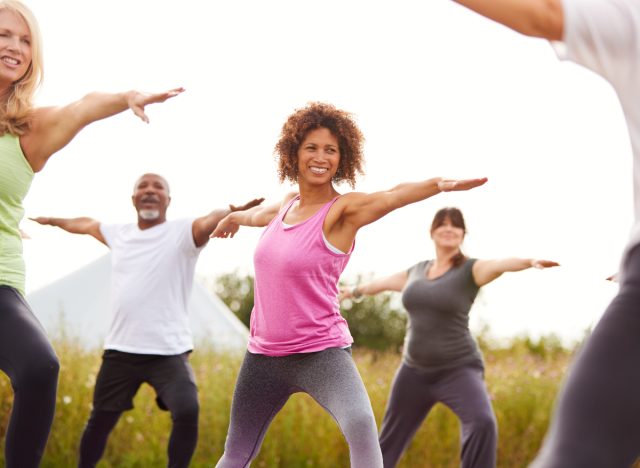
Establishing a regular yoga practice isn’t just for relieving stress; it can also be an outstanding cardio workout and calorie burner. Research shows that getting your namaste on can also be a helpful preventative intervention for cardiovascular diseases.
“Yoga and meditation are forms of exercise that can assist in the balance of our body, soul, and mind,” explains Dr. Tracy. “We don’t engage in enough meditation, mindfulness, and balance; these forms of exercise promote this homeostasis.”
Tai Chi
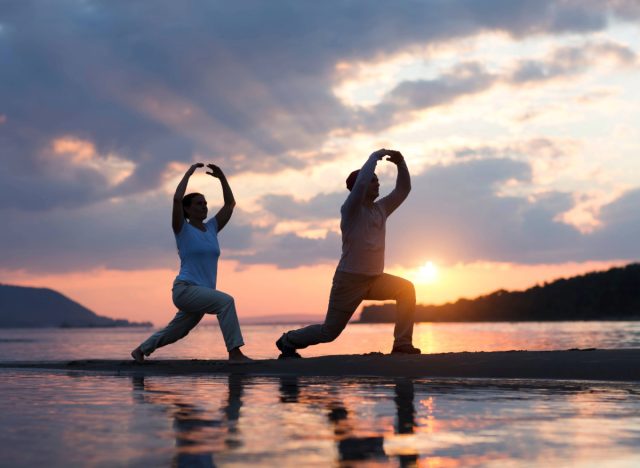
Tai chi is one of several traditional Chinese exercises. It combines body mindfulness with low-intensity exercises.
“The lower intensity and slower movements [of tai chi] allow people with physical limitations who are more frail and/or elderly people to participate in exercise,” Dr. Tracy tells us.